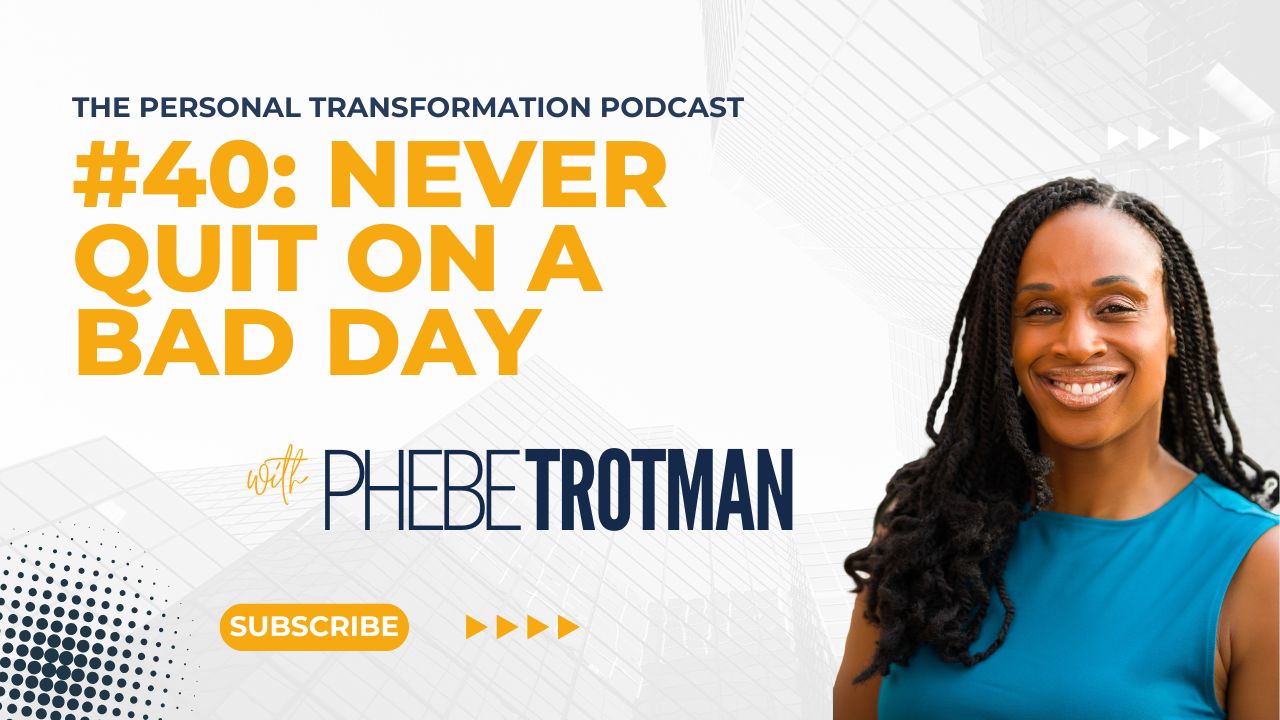As I began writing this blog, I had a realisation of how much being a perfectionist has impacted my life over the years.
Being a perfectionist stops you starting things, meaningful projects that can have a positive impact on your life and others. You don’t start things if they aren’t going to be perfect. And if you don’t start, you can never create anything of any value. Being a perfectionist is the ultimate vicious circle.
I have to keep reminding myself of that fact.
So what does being a perfectionist have to do with getting outside of your comfort zone?
Perfectionists have three fears which are the barrier to any great project, and once you understand these fears and how they serve you, you can begin to break their hold over what you do and don’t do as a result.
Fear of Starting
“If I’m not good at it already, I’m probably better at something else!”
This is the ultimate get-out-of-trying phrase for anyone looking for an excuse not to get started.
Sure, there is a good chance that some of your natural talents have been discovered, and then refined over the years so that you have become adept. But what if some got missed?
Perhaps you were a musical prodigy as a child but grew up in a home with no exposure to music. Maybe you were a potential athlete but grew up in a family that preferred television to training. Maybe you could have been the next Stephen Hawking but your family couldn’t afford the beginner telescope you so wanted.
I can guarantee we all have talents that remain undiscovered, dormant, waiting for us to realise they lie there hidden. But if we never venture from the beaten path, how are we ever going to discover them?
You have to try new things to get outside your comfort zone. Let go of that excuse, stop taking yourself so seriously for a minute and go do something different. Take a dance class. Write a poem. Order something different for lunch.
Starting something new isn’t difficult, but it does require a tiny little effort and a moment of bravery. The thing is, once you start in one area and notice it doesn’t hurt, you can start translating that to other areas of your life.
Making excuses is a habit you developed over time, and starting things is just a different habit you are going to have to develop to replace it. Habits take time to build up, and if you start slowly and consistently, you will find your willingness to try something new kicking in automatically before too long.
Fear of Wasted Effort
“If I’m not good at it immediately, it’s obviously not meant to be!”
Once you’ve got started, you need to take that as a commitment to follow through. Unfortunately, this is where the bumps and bruises begin.
Anything at which you are currently proficient, you were once less talented. This means, when you start, this is about as bad as you are possibly ever going to be at this task. It is difficult to get worse from here (hopefully) so everything from this moment on is an improvement.
There are ways to protect yourself from the bumps while you learn (stabilisers on a bike, arm bands when swimming etc) but sometimes you have to face live fire straight away (running a sales meeting, asking a girl for a date).
Whatever the situation, you have to be prepared to take the rejection/failure/embarrassment (insert your particular fear here) and use it as a lesson to help you improve.
However, this particular excuse allows you to avoid the pain of wasted effort. Wasted effort is when you try and don’t get anywhere, or at least when you try and don’t get as far as you might have liked.
Even based on our modest amount of experience, it is funny that we develop expectations of how quickly we should progress. Reality almost sets us up for failure as well, giving us some rapid fire success early on before allowing our development to suddenly flatline. We meet this river of treacle in full flow and discover that if want to move any further forward, we are going to need to dig in a little deeper than first imagined.
This is where our arrogance is given the chance to get out. Why should it be made to prove itself again? After all, it is already successful in other areas, surely that should count for something (as if you can trade in effort credits that you previously banked!). Our arrogance is put out at the thought of having to go through it all over again, but if you want to move forward, you are going to have to shut that little voice up for a while, and there is no telling how long.
Instead, recognise the progress you do make. Chart it, keep a scrap book, take photos of your journey and occasionally reminisce on how far you have come and what hurdles you had to face. Your progress will be continual even if it isn’t consistent, and when things feel endlessly uphill, having those reminders will prove helpful and motivational.
Fear of Success
“What if I get there and it turns out I’m not very good?”
There is an irony in business in that people get promoted to their lowest point of incompetence. Effectively what that means is if you can do a job well, you usually get promoted to the next job until you find a job you aren’t very good at and then that is where you stay.
However, there is no real way of knowing how well you are going to perform at the next level until you get there. Additional pressure, responsibility and stress impacts performance, but you never know in which direction. Some people rise to the challenge whereas others crumble and fall by the wayside. They say pressure it was makes diamonds, but stand on a banana and I doubt you can cash that in at the jewellers.
Being afraid of possibility is like going to a restaurant and always choosing the same thing on the menu. Sure, you feel comfortable with what you order as you’ve had it a hundred times before and you know it’s going to be nice. But if you never try anything new, how will you ever know what else is out there for you?
I mean, what if you try something new and it is BETTER than what you have always had? Can you imagine what that would mean to your life? All those times you could have chosen to have something better but instead took the comfortable choose, thinking it was as good as it gets.
Because we don’t know what lies in store for us at the next step, we tend to accept what we have currently, or ‘settle’ as it is more commonly known. Fear of the unknown, uncontrollable and unpredictable stops us from opening Pandora’s box just in case. I mean, look what curiosity did to the cat!
I promise you, you will always be unprepared for the next step. You cannot be good at something before you do it, but you can get better once you start doing it. And if you get there and find out it isn’t for you, then take a step backwards or sideways and try a different path forward. You always have potential for growth and development and maybe you just chose the wrong path. But at least you chose a path. If you lose the remote on the sofa, you don’t sit there waiting for it to find you, you get up and rip the sofa apart until it turns up. Think of your progress like that. Maybe your future doesn’t lie under the nearest cushion or down the crack between the seats, but at least you looked. And I promise you, you will find it eventually.
Stepping outside of your comfort zone is about overcoming your fears and getting out of your own way. Just need to figure out how you are going to start that new habit today!



[…] Use of 4-letter Words” and involved concepts from some of my other posts on Bravery and Getting Outside Your Comfort Zone, but also looked at historical elements of fear written about by Napoleon Hill in The Master Key To […]